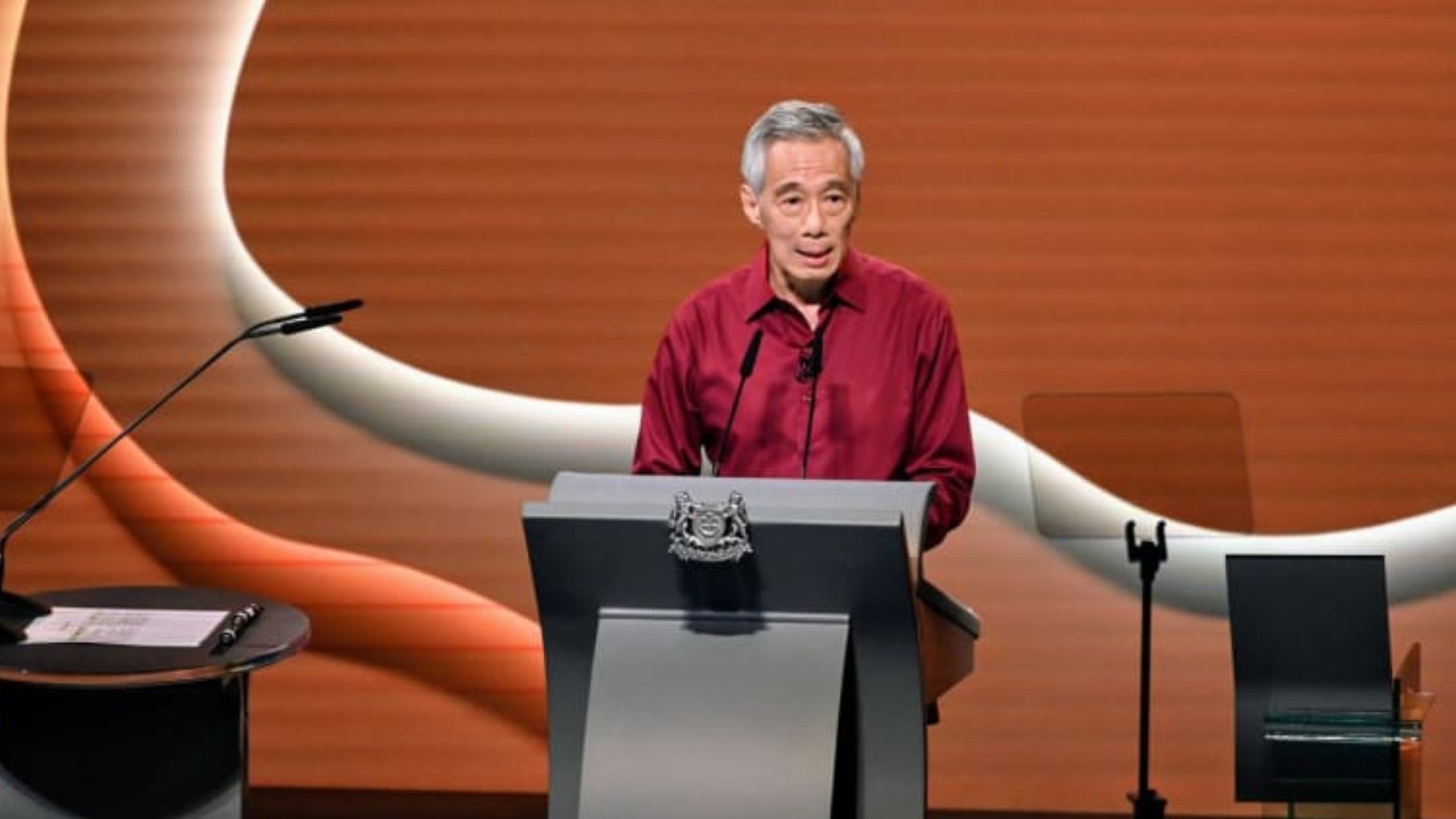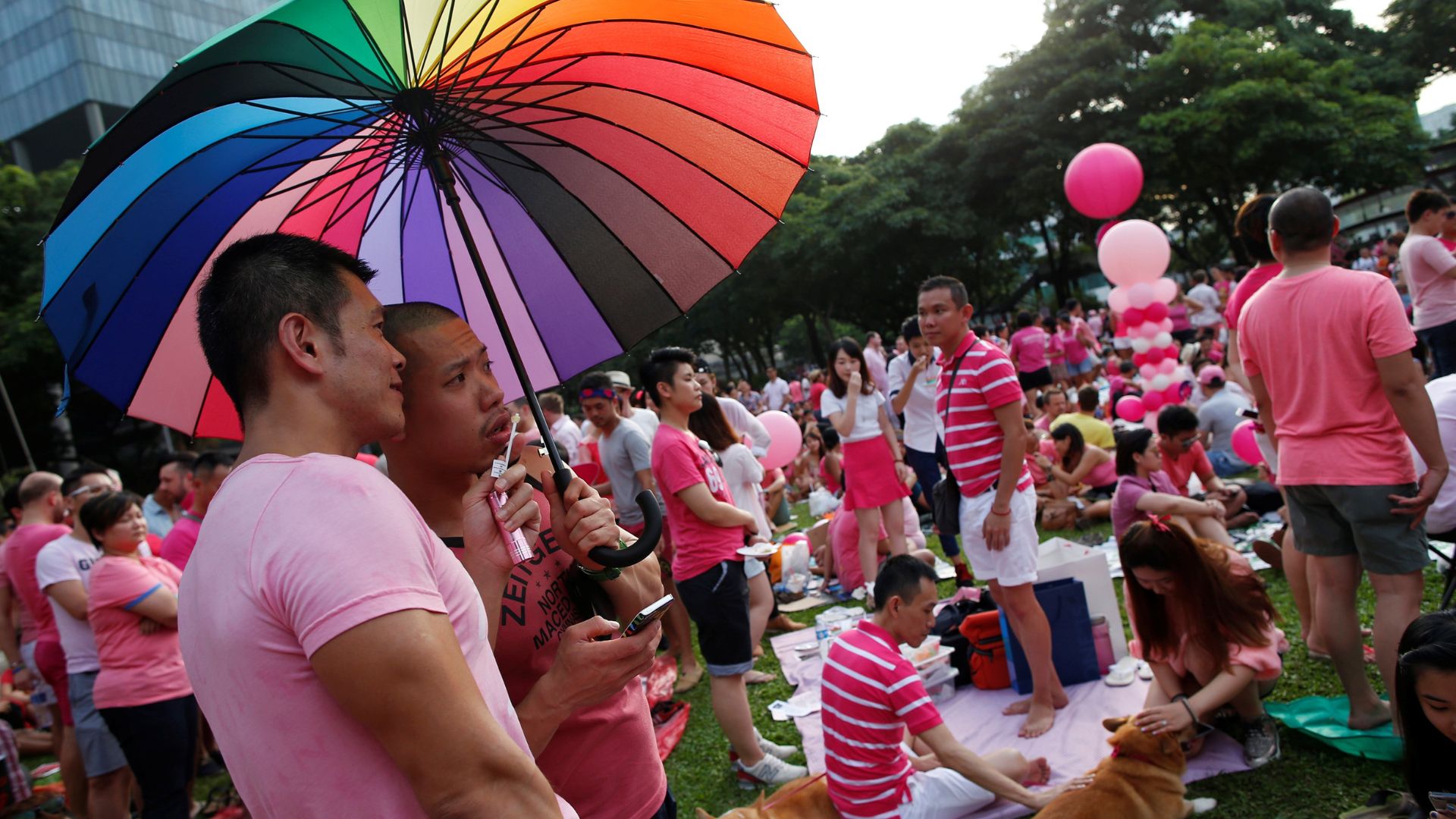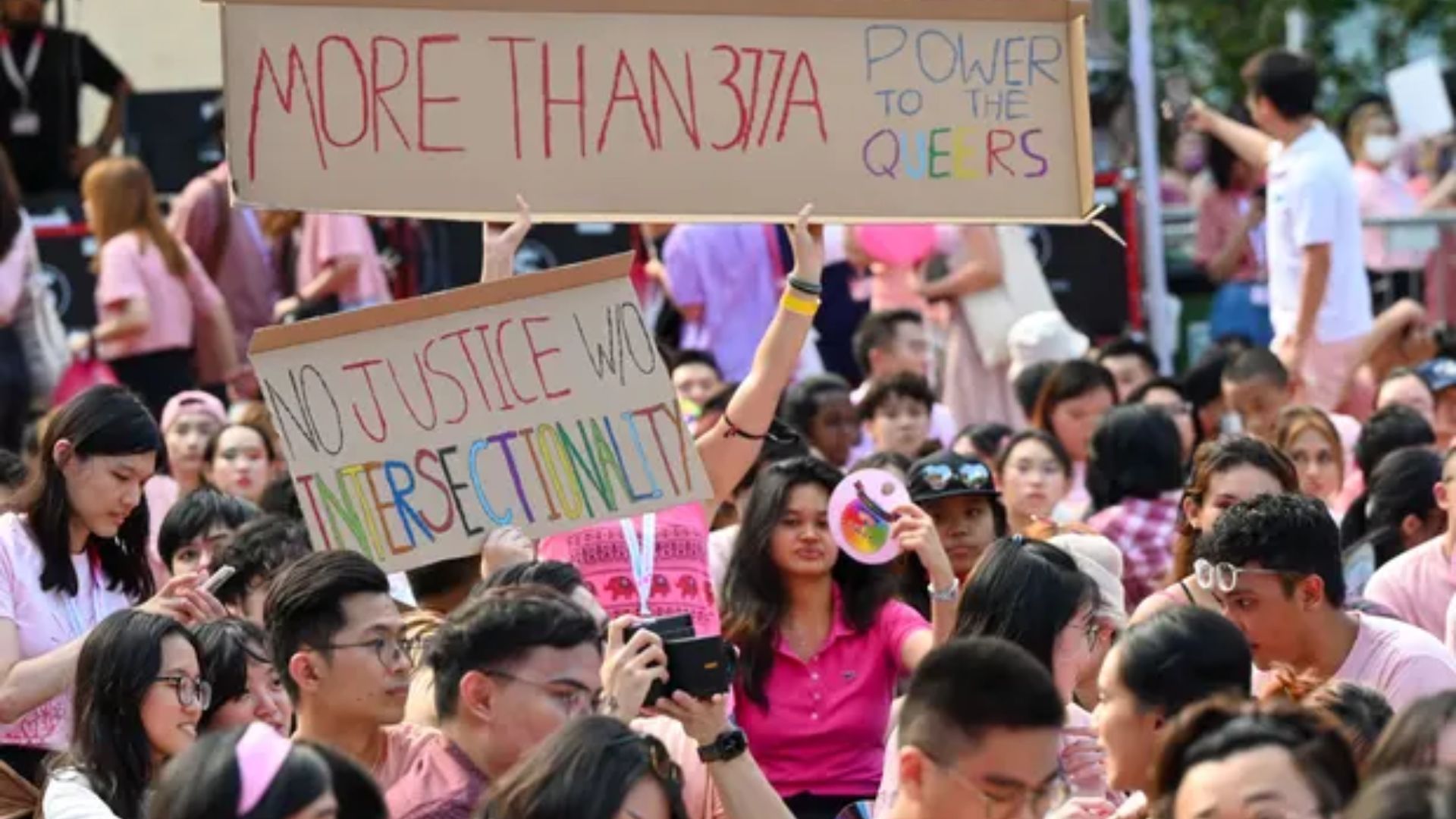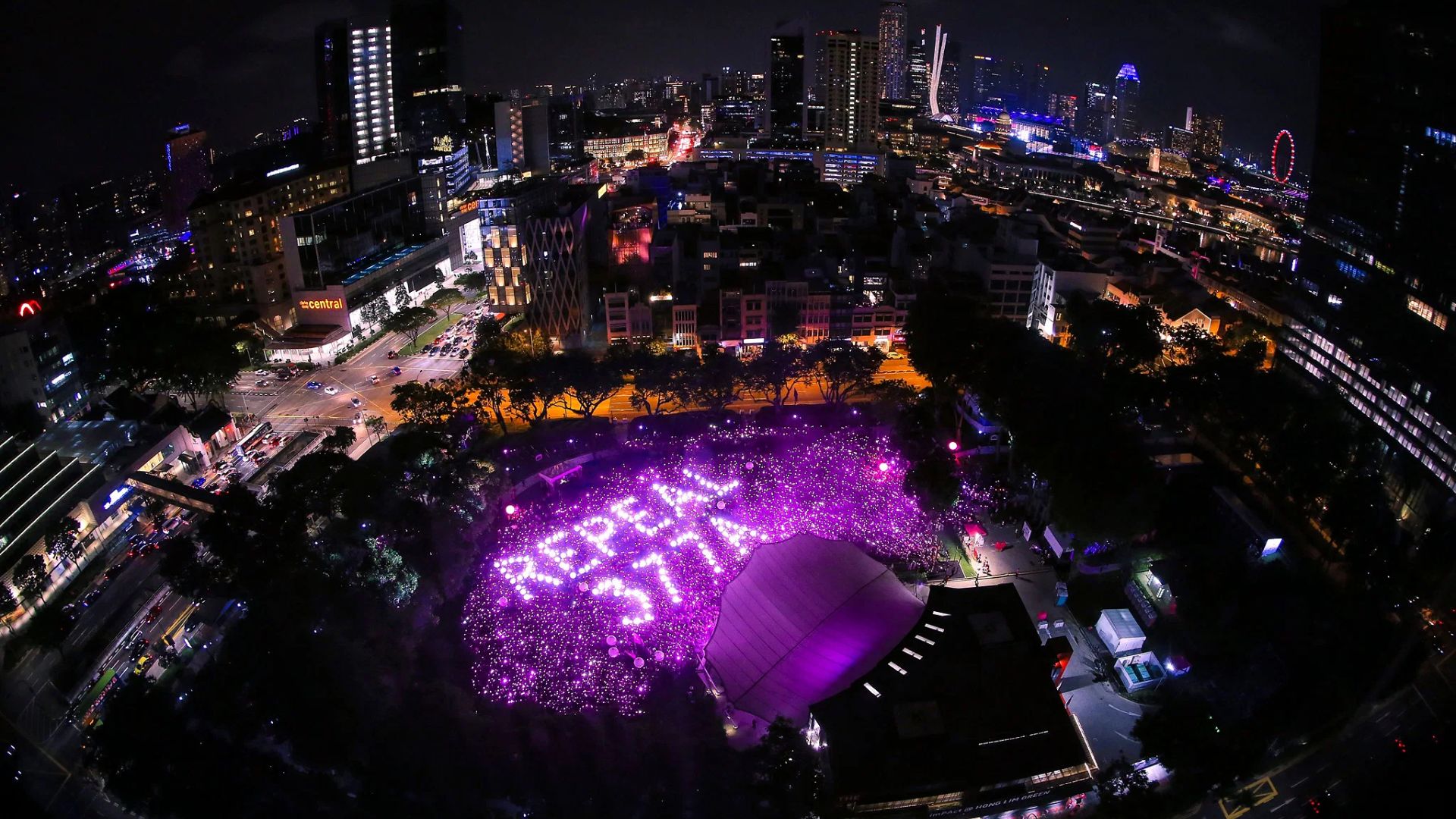It took Singapore 15 years to finally say “yes” to repeal Section 377A, a deeply divisive law that criminalises sex between men.
On Sunday, 21 August, Prime Minister Lee Hsien Loong made the much anticipated announcement during his National Day Rally 2022 (NDR 2022) speech. “I believe this is the right thing to do, and something that most Singaporeans will now accept. This will bring the law into line with current social mores, and I hope, provide some relief to gay Singaporeans.”

The announcement comes after years of contentious debates in Parliament and legal challenges from various parties, either arguing for or against the law that originated from the British colonial era, making Singapore the latest place in Asia to move on LGBT rights, after India, Taiwan and Thailand.
LGBTQ activist Dr Roy Tan, 64, tells TheHomeGround Asia he is “elated and relieved for Singapore’s LGBTQ community about the impending repeal of Section 377A”. A retired General Practitioner (GP), he was one of six men who challenged Section 377A of the Penal Code in the courts, launching challenges to the law in 2019. Their cases resulted in the Court of Appeal declaring in February that Section 377A was entirely unenforceable.
Dr Tan says the 28 February 2022 landmark judgement by the Court of Appeal was instrumental in the Government arriving at its decision on Sunday.
“It has been an arduous 12-year struggle to arrive at this juncture. We are greatly indebted to Tan Eng Hong for having the courage to initiate the first constitutional challenge in 2010 which clinched a seminal ruling and made all subsequent challenges possible. He undertook this despite a complete lack of support and despite facing the spectre of bankruptcy from hefty court fees,” Dr Tan says.
The “Tan Eng Hong” he is referring to challenged the constitutionality of the anti-gay law after he was charged in 2010 for allegedly having oral sex with another consenting adult man in a locked cubicle of a public toilet.
His case clinched a landmark judgement by the Court of Appeal, flinging the doors open to make possible four subsequent constitutional challenges, culminating in the statute being ruled “unenforceable” in 2022.
The origins of Section 377A
Section 377A is a legacy of Singapore’s colonial past, introduced into its Penal Code in 1938, specifically criminalising sex between consenting male adults.
It descended from the 1885 Labouchere Amendment. Then, homosexuality was only illegal with regards to the act of buggery but it all changed when Liberal MP for Northampton Henry Labouchere, a strong opponent of homosexuality, introduced Section 11 of the 1885 Criminal Law Amendment Act which made all homosexual acts illegal.
While the bill was primarily concerned with the protection of women and girls by increasing the age of consent, this small section was pivotal in homosexual legislation and was passed during a late night debate in the House of Commons with only a few MPs present.
The move towards repeal: amicable and “within the law”
So far, Section 377A has since been repealed in the United Kingdom (where the law originated), Hong Kong, Australia and India. In East and South-east Asia, only Myanmar, Malaysia, Brunei, and Indonesia’s Aceh province continue to criminalise sexual activity between men.
While violence ensues in the Western world over fighting for communal rights, in Singapore, the fight is considered “mild and amicable” and “organised within the law”.
In 2000, the Speaker’s Corner at Hong Lim Park became Singapore’s first outdoor legal public-speaking venue where visitors could give public speeches without the need for various licences. The regulations there were further relaxed in 2004 and 2008, paving the way for Singapore’s first ever public pro-LGBTQ rally on 19 May 2009.
Dr Tan was the first to register an LGBTQ rally at Hong Lim Park in 2008 but postponed it to 2009 to spend more time organising. This rally came to be known as Pink Dot SG, a non-profit movement and Singapore’s biggest civil society gathering. The annual rally at Hong Lim Park grew over the years in both attendance and public support from everyday Singaporeans, celebrities, and politicians. It is mainly a rally for changes in the laws that govern the community.

In 2019 Pink Dot SG focused on Section 377A and efforts to repeal this archaic law. It was the last time the rally was organised in-person before the Covid-19 pandemic hit. The next time crowds physically gathered at the park was June this year and media headlines seem to focus on awarding accolades to those who attended. This, many believed, might just well indicate an underlying shifting of tides.
Dr Tan himself also “predicted” this when he, in a June interview with TheHomeGround Asia, said that “the State is going to repeal Section 377A soon, probably before the year is out”. He said the leaps and bounds made in a series of “firsts” in the Government’s allowing of recent publication in the mainstream media of a slew of LGBT-supportive news, most notably the Ipsos survey.
It was in 2007 that Parliament debated amendments to the Penal Code. Then Nominated MP Siew Kum Hong filed a citizen’s petition to repeal Section 377A, sparking a passionate debate on the topic with fierce arguments from both sides.
Speaking to the BBC after this year’s National Day Rally, the former NMP said there will be deeper conflict ahead and warned “we will see the temperature ratchet up” in coming months as Singapore prepares to enact both the repeal and constitutional amendment.
The constitutional challenges against Section 377A
But the first legal challenge posed against Section 377A was in 2010, when massage therapist Tan Eng Hong filed to declare Section 377A unconstitutional after he was charged under the provision for engaging in a sex act with a man in a locked cubicle in a public toilet.
His case was thrown out in 2011 when High Court judge Lai Siu Chiu found there was “no real controversy” for the court to proceed. Mr Tan’s appeal was heard in the High Court because Section 377A affects the lives of many in a “very real and intimate way”. This opened the door for others to file against S377A.
Gay couple Lim Meng Suang and Kenneth Chee put in the second constitutional challenge but was dismissed in April 2013 by High Court judge Quentin Loh who held that Section 377A is not inconsistent with Article 12 of the Constitution, which guarantees everyone equality before the law and equal protection of the law. Six months later, Justice Loh threw out Mr Tan’s case and wrote that Parliament should be the one to change the law because the issue is one of “morality and societal values”.
The Court of Appeal issued a landmark ruling a year after, saying it is constitutional and that the equal protection under Article 12 of the Constitution “touches only on issues of religion, race, place of birth and descent, not on gender, sex and sexual orientation.
But Mr Ong filed a fresh constitutional challenge after India’s Supreme Court struck off Section 377 of its Penal Code, which criminalises consensual gay sex. He was joined by Mr Choong and Dr Tan. This was thrown out in 2020 by High Court judge See Kee Oon, saying he found no conclusive scientific evidence to show that homosexuality is changing over time or that it is solely caused by biological factors.
He also said Section 377A cannot be said to be redundant “simply because the Government has taken a stance that it will not seek to enforce the law” and that Parliament should be the one deciding if the law stays.
The three men appealed against his decision and in dismissing the appeal in February, Chief Justice Sundaresh Menon also said Section 377A “would not be proactively enforced”, and that the Government has assessed that “society has yet to adequately integrate the opposing views of mainstream conservatives and the homosexual community”, and that “forcing the issue would polarise those who are presently willing to live and let live”.
The turning of the tide
Minister for Law and Home Affairs K Shanmugam has said on multiple occasions that LGBTQ persons would be protected, adding that “we are not any lesser by reason of our sexual preferences”.
In a Parliamentary hearing on 3 March, Mr Shanmugam reiterated that the Government is carefully considering the best way forward on Section 377A of the Penal Code. “We must respect the different viewpoints, consider them carefully, and talk to the different groups,” he said.
“If and when we decide to move, we will do so in a way that continues to balance these different viewpoints, and avoids causing a sudden, destabilising change in social norms and public expectations,” he added.
A month later, Mr Shanmugam told the House the Government has been consulting with and will continue to speak to diverse groups of Singaporeans to better understand their viewpoints on 377A and will consider the various views carefully as it decides on the next steps for Singapore.
S377A repealed: What it means in the future
In an interview with CNA a day after PM Lee announced the repeal of S377A in his National Day Rally, Minister for Culture, Community and Youth Edwin Tong said the current legal position on Section 377A is a “very untidy compromise”, with the law criminalising sex between men being “vulnerable” to legal challenges.
This means that it was not possible for the Government to “keep to (the) status quo for much longer”, Mr Tong, who is also Second Minister for Law, said.
Mr Tong added that the Government studied the judgement made by CJ Menon “very carefully” and with advice from Attorney-General Lucien Wong, took the overall view that there is a “significant risk” that Section 377A could be struck down on the grounds that it breaches the Constitution’s Equal Protection provision.
Dr Tan tells TheHomeGround Asia that the retention of Section 377A caused “a trickle-down effect which influences many of the rules and guidelines governing the lives of LGBT individuals in Singapore”.

“With the law repealed, we can progressively dismantle the impediments to the visibility and progress of queer citizens because there no longer exists a reason for prejudicial treatment. These include the areas of media representation, censorship, employment, being subjected to the traumatising effects of conversion therapy, school and workplace bullying and violence, sexuality and safer-sex education in schools and in public advertisements, registration of societies and businesses, in the armed forces and access to inclusive healthcare,” Dr Tan says.
“My hopes for the future are that every Singaporean LGBT citizen will be able to enjoy exactly the same rights that our heterosexual counterparts take for granted, no more, no less. … Eventually, I look forward to a time when we can hold our heads up high as equals in every aspect of the law instead of living as marginalised, second-class citizens in our own country,” he adds.
RELATED: Unwrapped: Why 377A stays and how communities can better accept one another
Join the conversations on TheHomeGround Asia’s Facebook and Instagram, and get the latest updates via Telegram.





























